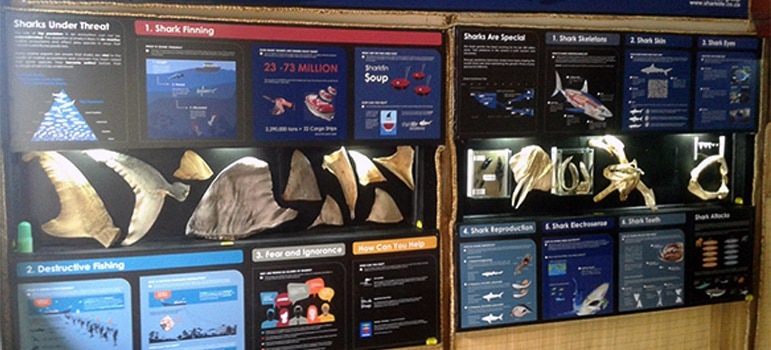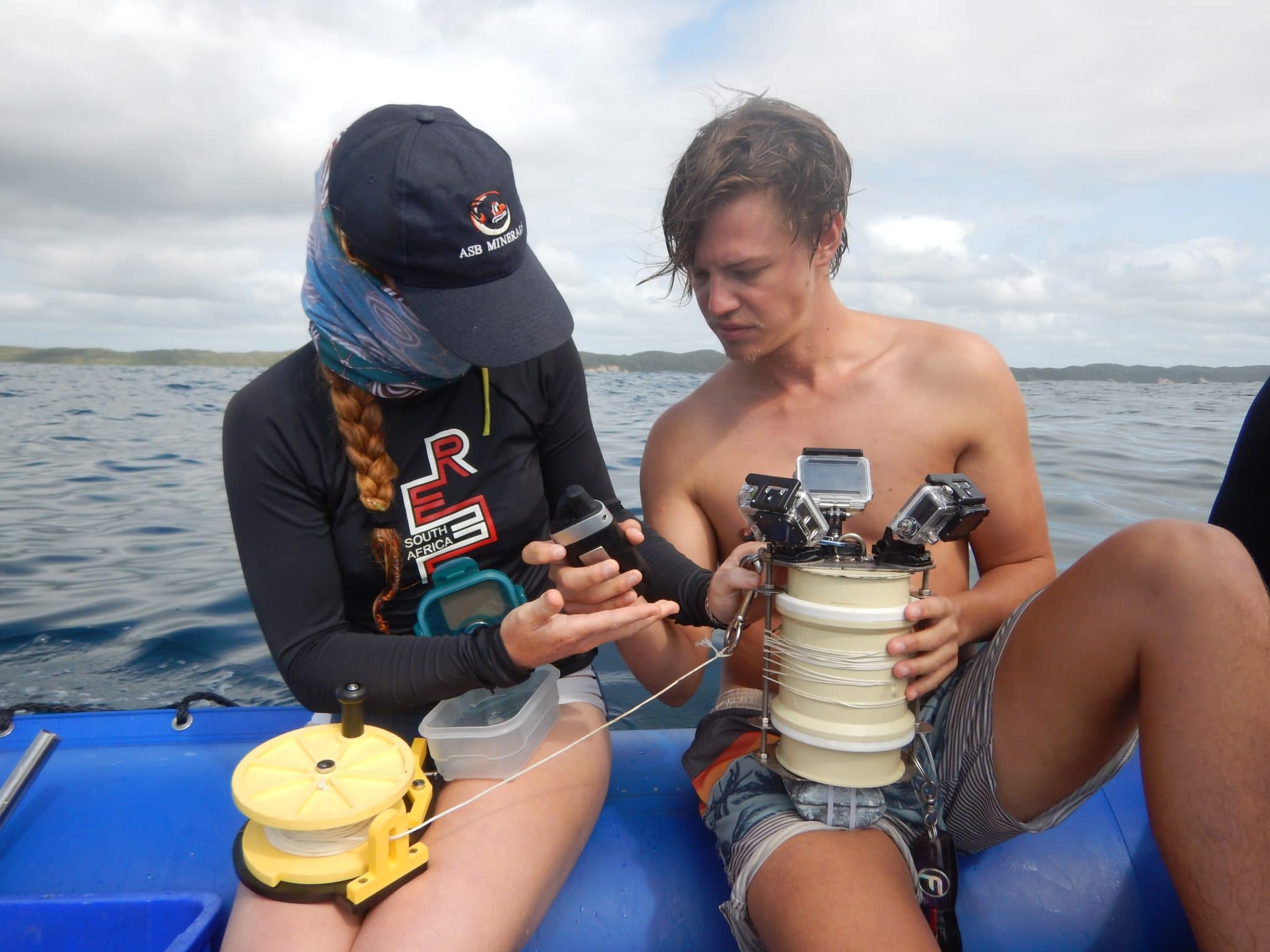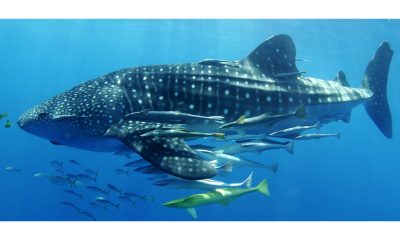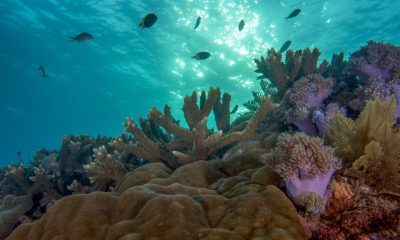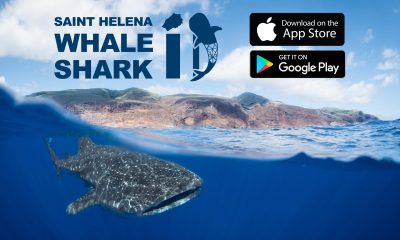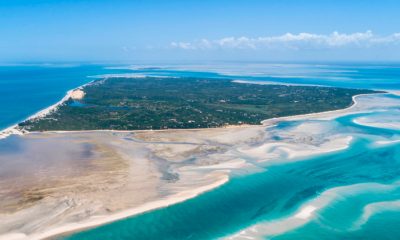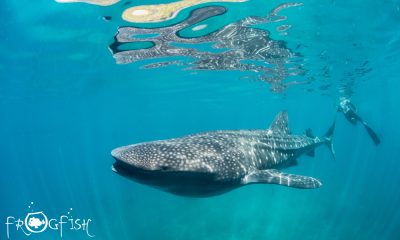Blogs
All about Sharklife
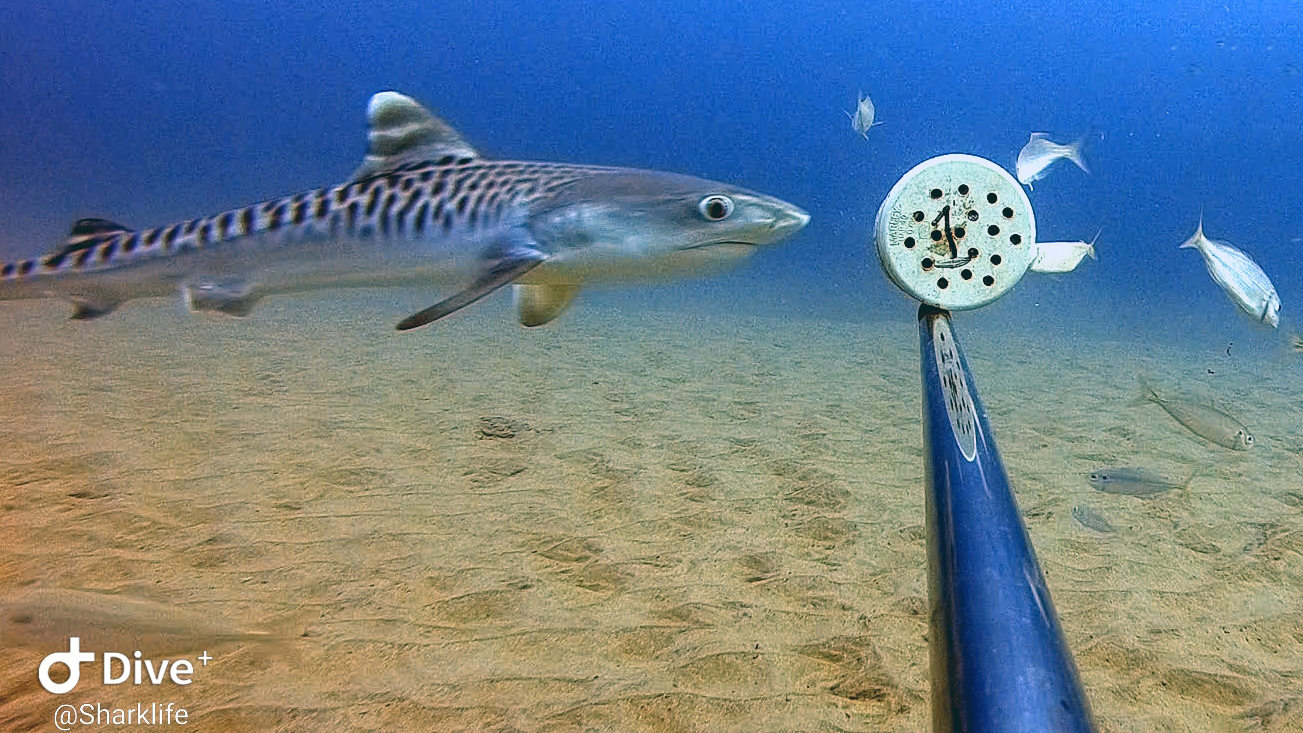
There is nothing quite like seeing an apex predator in the wild and divers are very fortunate to have the privilege to get up close and personal with one of the world’s most striking predators. South Africa is home to a great number of shark species that attract thousands of tourists every year. Great Whites, Tigers and Bull sharks are just some examples of over 100 different shark species living in the oceans around the South African coastline.
With such an array of species, it’s no wonder there are so many research and conservation organizations in the country that do exceptional work. These entities are collecting important data that is showing how important the shark species is, not only the ocean’s survival, but that of mankind too.
So, what’s the big deal, they’re just fish with teeth?
Sharks have an undeserved reputation as being man-eaters. Considering the millions of people that use the ocean everyday whether for recreational or occupational use, as few as 10 people die from shark interactions annually. If they were the man-eaters we made them out to be, that number would be much higher. More people die from accidents with household appliances in one year than people have died from sharks in the last 100 years.
The shark is an important part of the ocean’s ecosystem, but more importantly it’s their role in the survival of the planet we need to be concerned about. With an estimated 100 million sharks being killed every year, ocean ecosystems around the world have been severely destabilized and unbalanced. Sharks help maintain a healthy gene pool by predating on the weakest of their prey, ensuring the strongest survive to continue the species.
If we wiped out the Great White Shark population in South Africa, there would be an abundance of seals, this growing population of seals, now the new apex predator in the area, would very soon consume to a point of extinction many crustaceans and small bait fish resulting a complete collapse of many fishing industries and worse, the collapse of an entire ecosystem.
Education about the importance of sharks and changing people’s perception of sharks are small actions that can make positive change. An organization that has been working hard to educate people about sharks is “Sharklife”.
I recall becoming a Sharklife Instructor in 2008 when the organization had just started offering a range of courses on several of the shark species found in South Africa. Courses were offered on specific sharks and required a number of dives to study the shark’s behavior and unique characteristics. One of the challenges we faced as instructors was guaranteeing shark sittings on training dives. Some sharks are much easier to encounter reliably than others.
We had some interesting dives experimenting with different non-invasive methods of attracting sharks for our students to study. The most noteworthy of these experiments was trying find what would attract Bull Sharks. These elusive predators can be very inquisitive and engaging which made for some exciting learning experiences.
Today Sharklife has a permanent base in Sodwana Bay, South Africa. At the current premises, Grant Smith, Sharklife managing director, oversees a number of research projects and conducts research internships for candidates from all over the world. In addition to the various shark courses on offer, there is a shark museum with some fascinating displays and shop where you can purchase a host of different shark related products.
Sharklife Objective:
Through scientific research, education and awareness bring about positive change to the current destructive trends of ocean exploitation.
Sharklife Current Aims:
- To develop a compassionate desire to conserve sharks by altering public misconceptions about sharks and replacing the “Jaws” syndrome with positive understanding and respect.
- Reduce anthropogenic threats to over exploited marine species by increasing awareness and encouraging sustainable seafood choices.
- Increase marine tourism and transform shark populations into a sustainable living resource by developing educational ocean experiences for all South African’s
In line with aim number 2, one of their achievements was the removal of shark nets in the Rocky Bay area in Kwa-Zulu Natal. An initiative that started in 2008 and took years of relentless campaigning resulted in the removal of the shark nets in this Marine Protected Area. The capture of 14 Tiger Sharks on the 18th April 2012 was a catalyst that renewed efforts for the lifting of the nets and on the 30th April 2014 the nets were lifted for the last time.
More information about this campaign can be found here: https://www.sharklife.co.za/index.php/our-projects/completed-projects/shark-net-removal
How can you get involved?
Visit their website, www.sharklife.co.za and sign up for free shark course. You can even adopt a shark and join as a monthly member.
Regardless of the organization you support, something has to be done before it really is too late to turn back and recover. There are hundreds if not thousands of initiatives out there to get involved with or contribute to and I know all of them appreciate the smallest donation of time or money.
Personally, I would hate to never again see the wonder in a diver’s eyes when they interact with a shark for the first time.
Article by PJ Prinsloo – www.pjptech.co.za
Blogs
Jeff chats to… Christopher Bartlett, MD of Indigo Safaris, about scuba diving and safaris in Africa (5 of 5)
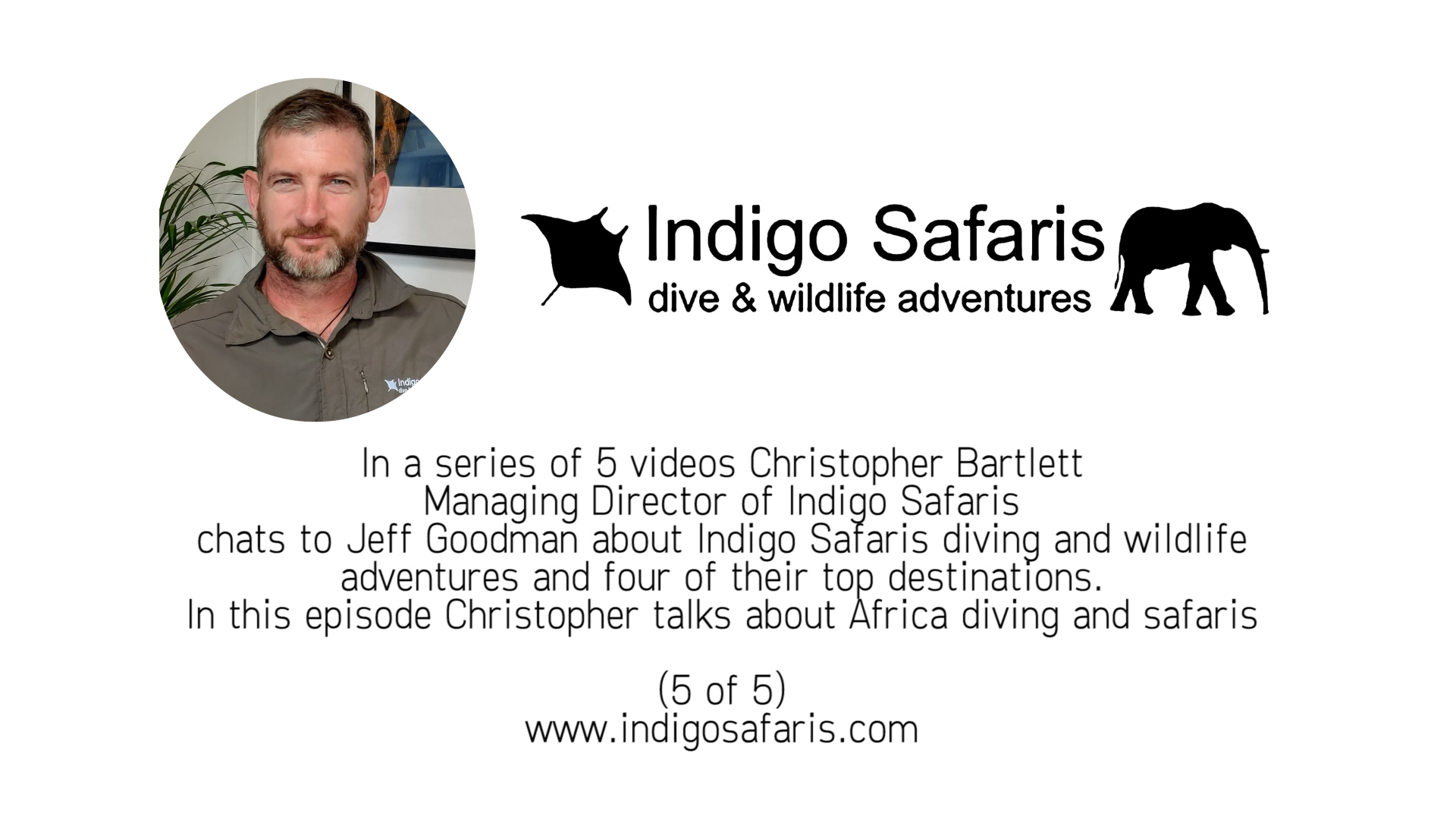
![]() In the last in this exclusive series of five videos, Jeff Goodman, Scubaverse Editor-at-Large, chats to Christopher Bartlett, Managing Director of Indigo Safaris, about their diving and wildlife adventures, and four of their top destinations. In this episode Christopher talks about Africa.
In the last in this exclusive series of five videos, Jeff Goodman, Scubaverse Editor-at-Large, chats to Christopher Bartlett, Managing Director of Indigo Safaris, about their diving and wildlife adventures, and four of their top destinations. In this episode Christopher talks about Africa.
For more information, please visit www.indigosafaris.com
Rather listen to a podcast? Click on this link to listen HERE.
Blogs
Jeff chats to… Christopher Bartlett, MD of Indigo Safaris, about scuba diving in St Helena (4 of 5)
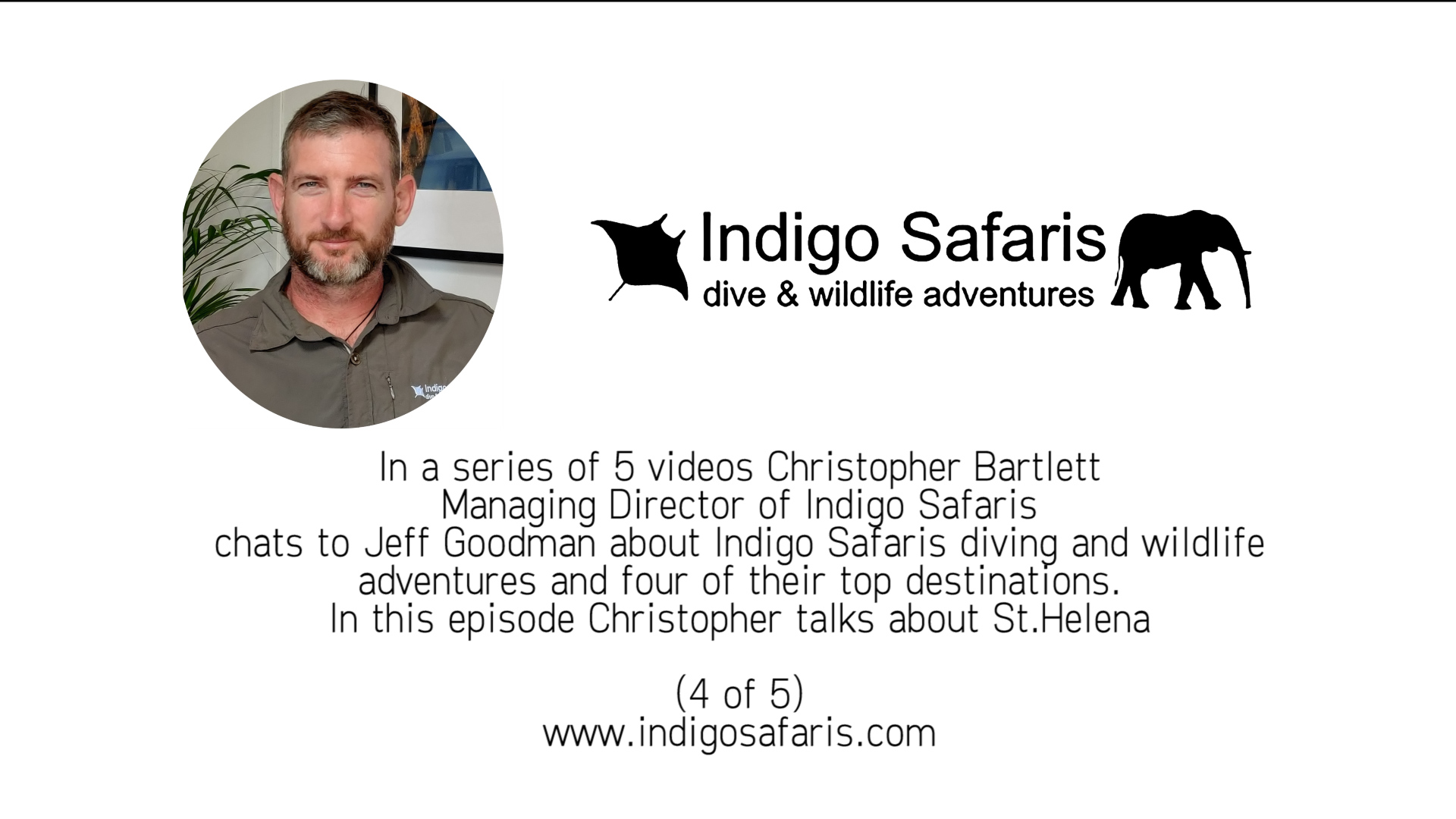
![]() In the fourth in this exclusive series of five videos, Jeff Goodman, Scubaverse Editor-at-Large, chats to Christopher Bartlett, Managing Director of Indigo Safaris, about their diving and wildlife adventures, and four of their top destinations. In this episode Christopher talks about St Helena.
In the fourth in this exclusive series of five videos, Jeff Goodman, Scubaverse Editor-at-Large, chats to Christopher Bartlett, Managing Director of Indigo Safaris, about their diving and wildlife adventures, and four of their top destinations. In this episode Christopher talks about St Helena.
For more information, please visit www.indigosafaris.com
Rather listen to a podcast? Click on this link to listen HERE.


